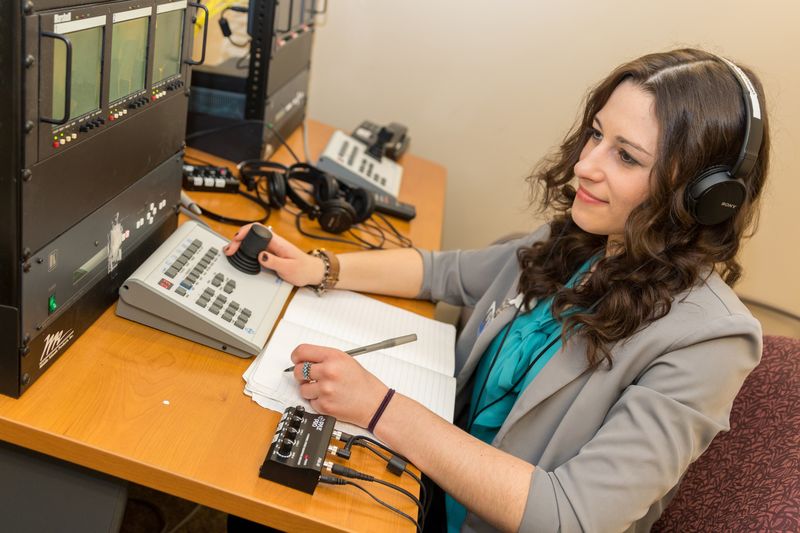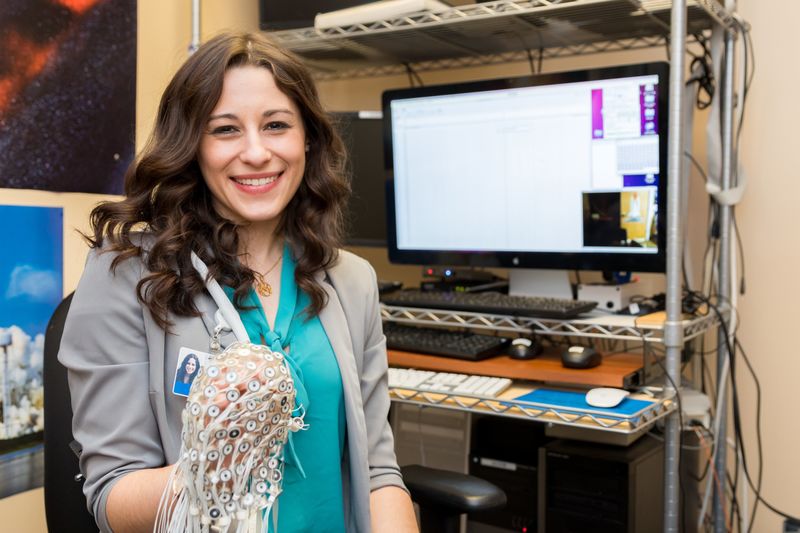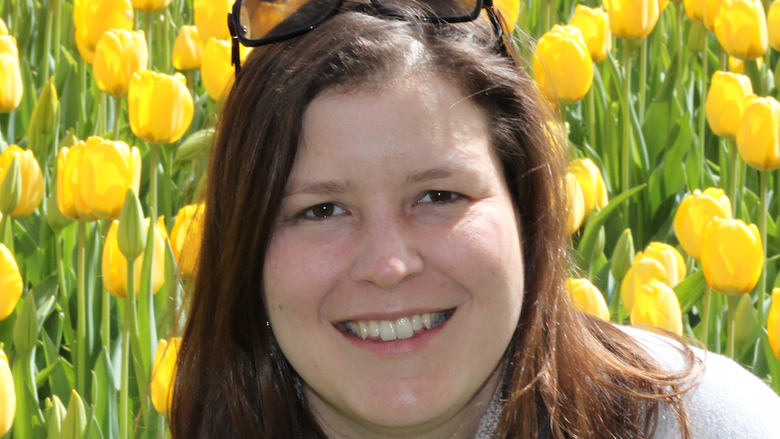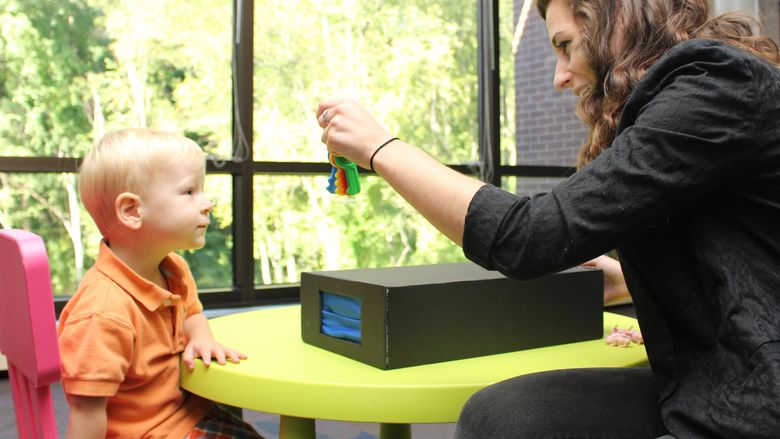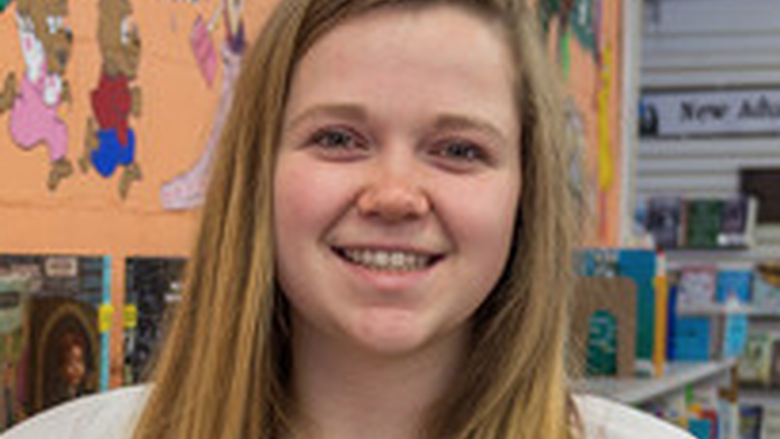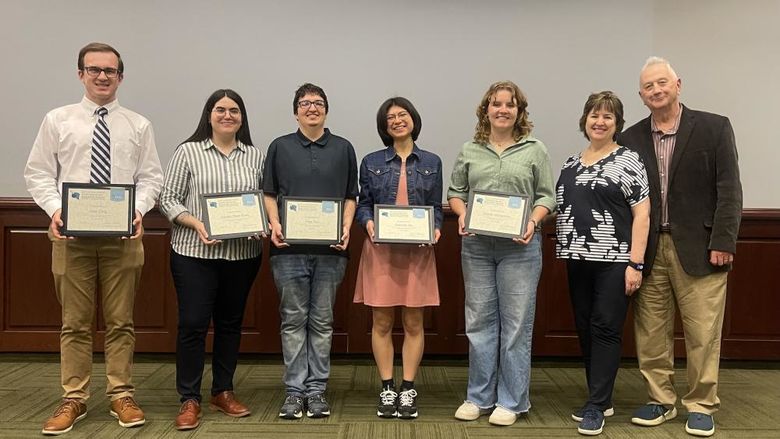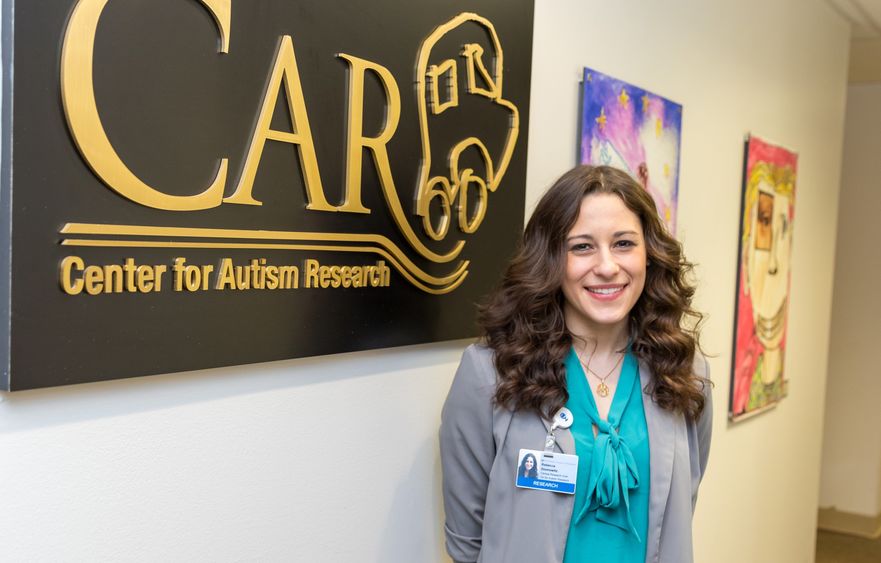
Penn State alumna Rebecca Slomowitz is working to better understand autism as a researcher at the Center for Autism Research at the Children’s Hospital of Philadelphia.
While earning her bachelor's degree in psychology from Penn State Brandywine, Rebecca Slomowitz quickly discovered her passion for child development and instinctively knew she wanted to pursue a career in the field.
Her enthusiasm started with an undergraduate research project she completed alongside her faculty mentor, Jennifer Zosh, associate professor of human development and family studies, that explored how infants' working memory performs when remembering people versus objects. Her project eventually led the Schreyer Honors Scholar to an internship with the Child’s Play, Learning and Development Lab at the University of Delaware, where she worked on studies that examined early language development in young children before graduating in 2015.
Today, Slomowitz is a clinical research assistant for the Infant Brain Imaging Study (IBIS) at the Center for Autism Research at the Children’s Hospital of Philadelphia, and credits the academic curriculum and research opportunities at Penn State Brandywine for getting her there.
Slomowitz explained that the goal of IBIS is to better understand the timing and pattern of brain development in very young children with autism. This will allow the researchers to recognize the underlying causes and brain development patterns associated with autism and hopefully allow clinicians to diagnose the disorder even earlier.
“Right now, the earliest a child can receive an autism diagnosis is during early toddlerhood,” said Slomowitz. “We know that early intervention is extremely important in helping children with autism, so we’re trying to discover ways that we can detect autism even earlier in infancy.”
The study includes two groups of children: those who are at higher risk for developing autism, and those at lower risk for developing the disorder. Previous studies have found that children with older siblings who have autism are at a higher risk for developing the disorder compared to children who don’t have an older sibling on the autism spectrum.
Slomowitz explained that IBIS is a longitudinal study, meaning she first sees participants when they are three or six months of age, and continues to follow their progress until 24 months of age. At each visit, participants receive developmental and behavioral assessments, an MRI scan of the brain and assistance with referrals for local services, if needed. At the last visit, if a child does meet the criteria for autism, a clinician will give them an official diagnosis.
“A major issue with autism diagnoses is that a lot of centers are inundated with people who are looking to receive an evaluation for their child, and it’s not uncommon for there to be a very long wait to see a clinician,” she said. “One of the nice things about our study is that families can come in and get a diagnosis pretty quickly compared to being on a wait list. They also receive incremental development updates about their child throughout the study and are even reimbursed for their time and travel expenses.”
Slomowitz also pointed out that this research is part of a network study, meaning that the Center for Autism Research is one of several IBIS sites from around the country that conducts the same study. All the data is then pulled together for a larger sample size.
“It has been such a pleasure to watch Becca transition from a dedicated and passionate undergraduate researcher to a professional,” said Zosh. “Her interest in the brain and in child development was apparent from the first moment she stepped into my introductory course. It was my honor to work alongside her on her senior thesis. I couldn't be more thrilled for her.”
“In order to get to this position I definitely needed to have previous research experience,” said Slomowitz. “Working with Dr. Zosh was such an amazing opportunity. I couldn’t have asked for a better mentor and there’s no way to express how appreciative I am. Students at Brandywine have such an amazing opportunity to work closely with faculty. I couldn’t recommend it more.”
Slomowitz will be presenting a poster highlighting the research on May 14 in Baltimore at the International Meeting for Autism Research. She is currently preparing for the GRE exam and plans to earn her doctorate in clinical psychology.
